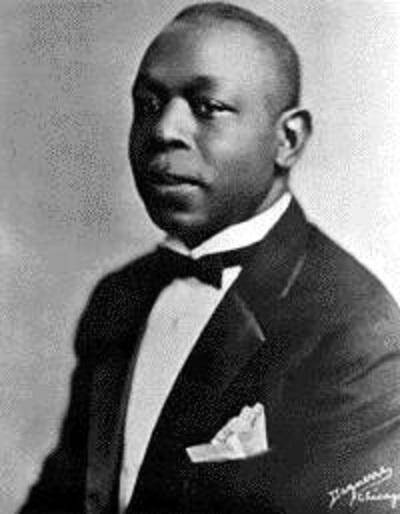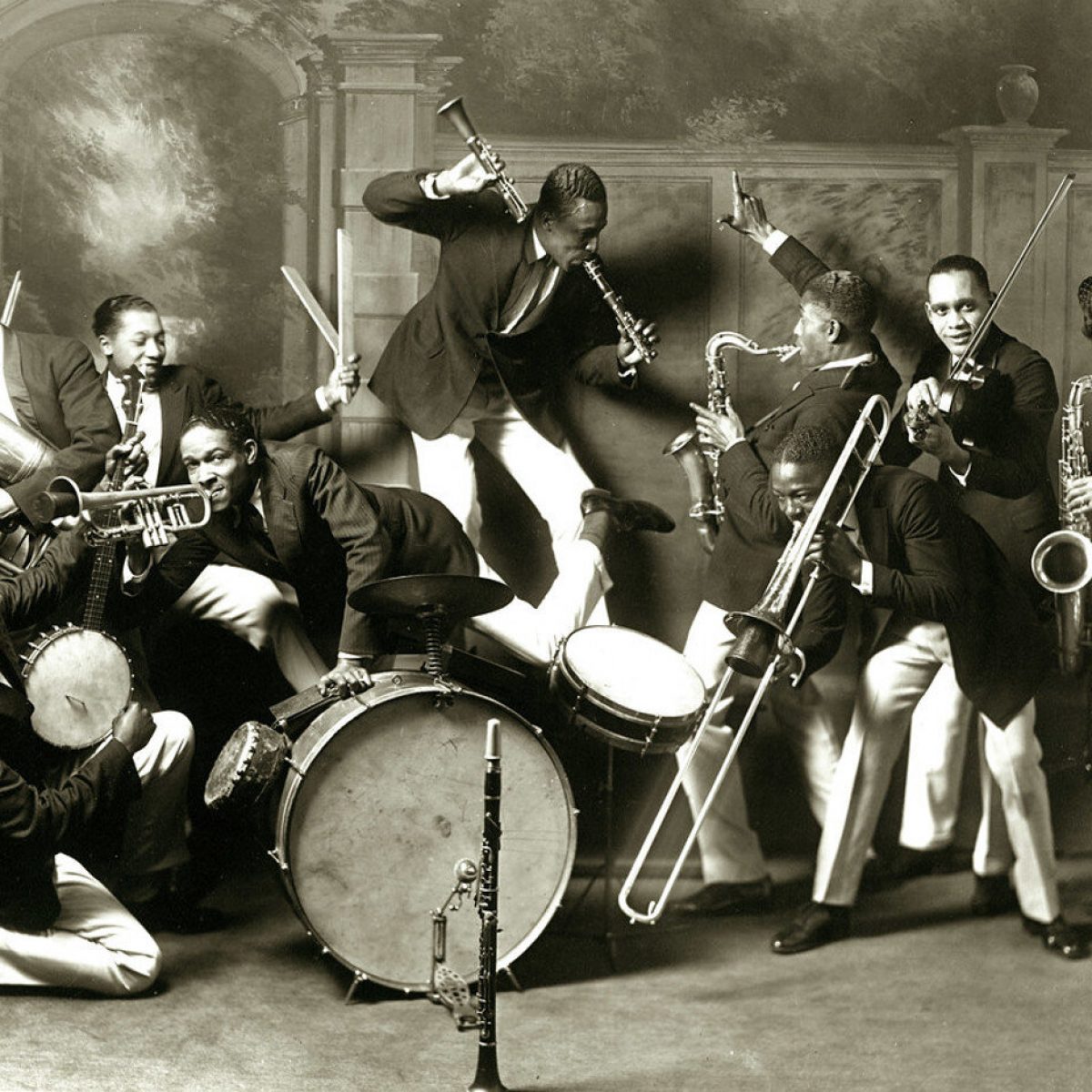
Johnny Dodds (April 12, 1892 – August 8, 1940) was one of the greatest clarinetist of the 1920’s. Although both Jimmie Noone and Sidney Bechet had better technique, Dodds had a very soulful, bluesy style of playing that was often emotionally powerful. He was a master of the New Orleans’ ensemble style of collective improvisation. He didn’t have the flash of Louis Armstrong, but often provided the perfect environment for Armstrong to shine. He worked with most of the major Hot Jazz bands of the era. Dodds was in Kid Ory’s band in New Orleans from 1912 to 1919. He played on riverboats with Fate Marable in 1917 and moved to Chicago in 1921 to play with King Oliver. Johnny and his brother Baby Dodds were an important part of Louis Armstrong’s classic Hot Five and Hot Seven recordings for Okeh. During the 1920’s he also recorded with Oliver’s Creole Jazz Band, Jelly Roll Morton and on most of Lil Hardin-Armstrong’s sessions. Unlike many of his famous contemporaries, Dodds and his brother stayed in Chicago and were pretty much forgotten as Jazz moved East to New York in the Thirties. He recorded several records under his own name in the Twenties, often with Natty Dominique on trumpet, and worked regularly at Kelly’s Stables from 1924 to 1930. Dodds continued to play and record in Chicago throughout the Thirties, and also ran a cab company with his brothers.
| Title | Recording Date | Recording Location | Company |
| Clarinet Wobble (Johnny Dodds) |
4-21-1927 | Chicago, Illinois | Brunswick 3774-B |
| Oh! Lizzie (A Lover’s Lament) (Irving Bibo) |
4-21-1927 | Chicago, Illinois | Brunswick 3585 |
| San (Lindsay McPhail / Walter Michaels) |
4-21-1927 | Chicago, Illinois | Brunswick 3774-A |
| The New St. Louis Blues (W.C. Handy) |
4-21-1927 | Chicago, Illinois | Brunswick 3585 |
| Artist | Instrument |
| Bud Scott | Guitar |
| Lil Hardin-Armstrong | Piano |
| Johnny Dodds by G.E. Lambert, A.S. Barnes, 1961 |
| The Baby Dodds Story as told to Larry Gara, Louisiana State University Press, 1959 |
| El jazz clásico y Johnny Dodds : su rey sin corona, by José Francisco Riesco, Santiago , 1972 |
Redhotjazz.com was a pioneering website during the "Information wants to be Free" era of the 1990s. In that spirit we are recovering the lost data from the now defunct site and sharing it with you.
Most of the music in the archive is in the form of MP3s hosted on Archive.org or the French servers of Jazz-on-line.com where this music is all in the public domain.
Files unavailable from those sources we host ourselves. They were made from original 78 RPM records in the hands of private collectors in the 1990s who contributed to the original redhotjazz.com. They were hosted as .ra files originally and we have converted them into the more modern MP3 format. They are of inferior quality to what is available commercially and are intended for reference purposes only. In some cases a Real Audio (.ra) file from Archive.org will download. Don't be scared! Those files will play in many music programs, but not Windows Media Player.





















